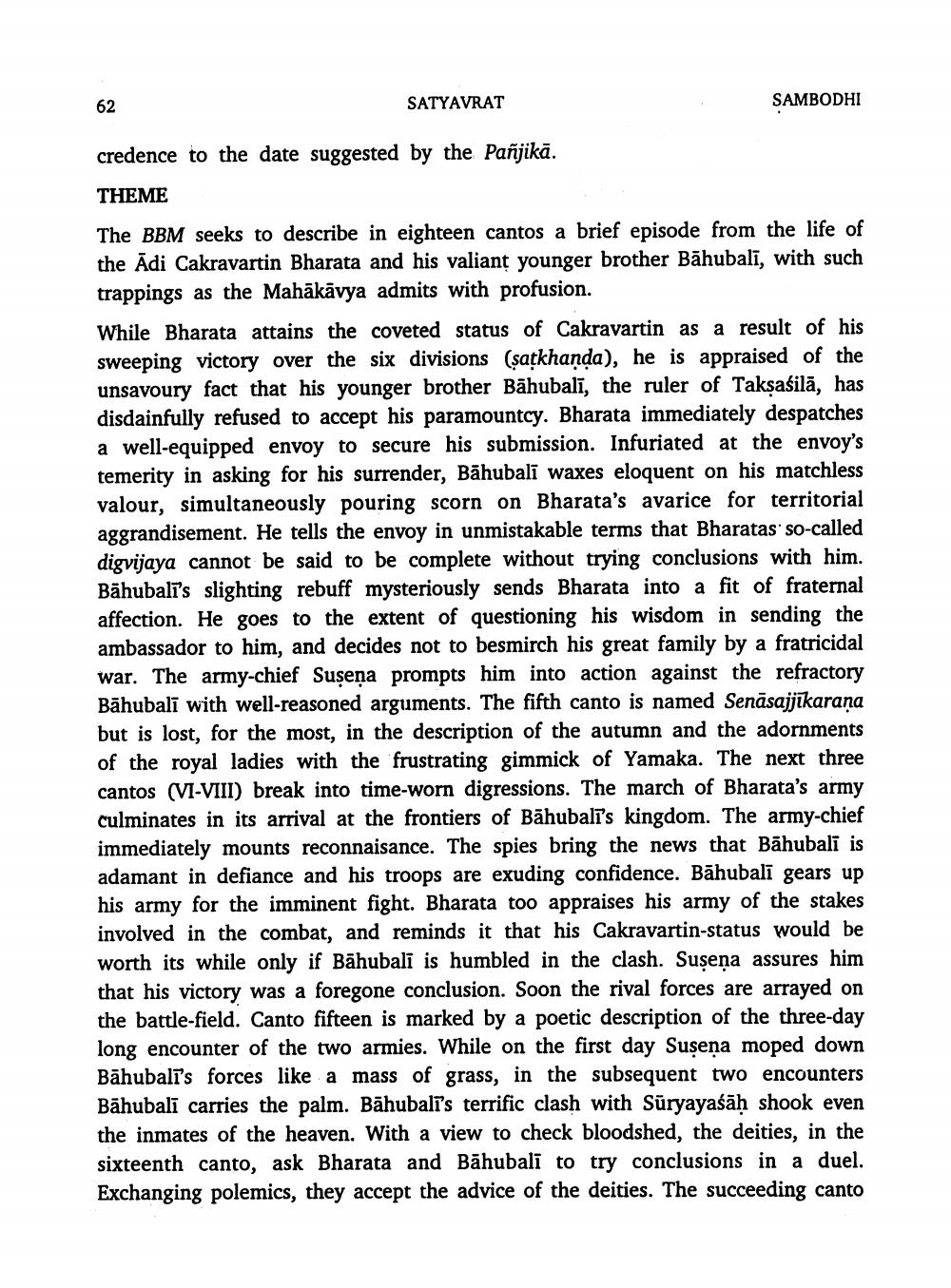________________
62
SATYAVRAT
SAMBODHI
credence to the date suggested by the Pañjikā.
THEME
The BBM seeks to describe in eighteen cantos a brief episode from the life of the Ādi Cakravartin Bharata and his valiant younger brother Bāhubalī, with such trappings as the Mahākāvya admits with profusion. While Bharata attains the coveted status of Cakravartin as a result of his sweeping victory over the six divisions (șatkhanda), he is appraised of the unsavoury fact that his younger brother Bāhubalī, the ruler of Taksasilā, has disdainfully refused to accept his paramountcy. Bharata immediately despatches a well-equipped envoy to secure his submission. Infuriated at the envoy's temerity in asking for his surrender, Bāhubalī waxes eloquent on his matchless valour, simultaneously pouring scorn on Bharata's avarice for territorial aggrandisement. He tells the envoy in unmistakable terms that Bharatas' so-called digvijaya cannot be said to be complete without trying conclusions with him. Bahubali's slighting rebuff mysteriously sends Bharata into a fit of fraternal affection. He goes to the extent of questioning his wisdom in sending the ambassador to him, and decides not to besmirch his great family by a fratricidal war. The army-chief Suşeņa prompts him into action against the refractory Bāhubalī with well-reasoned arguments. The fifth canto is named Senāsajjīkarana but is lost, for the most, in the description of the autumn and the adornments of the royal ladies with the frustrating gimmick of Yamaka. The next three cantos (VI-VIII) break into time-worn digressions. The march of Bharata's army culminates in its arrival at the frontiers of Bāhubali's kingdom. The army-chief immediately mounts reconnaisance. The spies bring the news that Bāhubali is adamant in defiance and his troops are exuding confidence. Bāhubalī gears up his army for the imminent fight. Bharata too appraises his army of the stakes involved in the combat, and reminds it that his Cakravartin-status would be worth its while only if Bahubali is humbled in the clash. Susena assures him that his victory was a foregone conclusion. Soon the rival forces are arrayed on the battle-field. Canto fifteen is marked by a poetic description of the three-day long encounter of the two armies. While on the first day Susena moped down Bahubali's forces like a mass of grass, in the subsequent two encounters Bāhubalī carries the palm. Bāhubali's terrific clash with Süryayaśāh shook even the inmates of the heaven. With a view to check bloodshed, the deities, in the sixteenth canto, ask Bharata and Bāhubali to try conclusions in a duel. Exchanging polemics, they accept the advice of the deities. The succeeding canto




